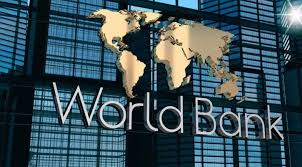$1.29b WB loans in 5 projects stalled as consultant recruitment delayed
- Update Time : Saturday, February 22, 2025

Staff Correspondent:
The Bangladesh Private Investment and Digital Entrepreneurship Project, launched to support digital entrepreneurs in hi-tech parks and attract private investment in economic zones, secured $500 million in World Bank funding in June 2020.
With the loan tenure set to expire this December, $418.66 million – 86% of the total – remains undisbursed due to delays in consultant recruitment.
This is among several such projects flagged by the World Bank in a recent report. Five of these projects received a combined commitment of $1.39 billion, yet $1.29 billion remains stalled, with utilisation rates ranging from just 6% to 14%.
Officials cite consultant recruitment challenges and procurement complexities as key bottlenecks, slowing execution and delaying fund disbursement. These obstacles threaten the timely completion of critical development initiatives.
Md Mamun-Al-Rashid, former secretary of the Planning Division, noted that delays in consultant recruitment are largely due to inefficiency in preparing tender documents and a lack of expertise in drafting terms of reference.
“Project directors often fail to study or thoroughly review project proposals, further delaying the process.
He also mentioned that another reason for delays in World Bank projects is the institution’s own procurement policies, which, when followed strictly, can slow down the recruitment process.
Abdullah Al Mahmud Faruk, project director of the Digital Entrepreneurship Project, that fund disbursement has been slow due to delays in the tender process.
“The project started late, and the recruitment of procurement consultants was also delayed. Additionally, adhering to World Bank regulations and preparing tender documents took considerable time,” he said.
He further explained that the project involves several large-scale tenders, making procurement evaluations more complex than in other projects. Each stage of the evaluation required notifying participants, which added to the delays.
$9.59M IN PIPELINE
According to the World Bank, 53 ongoing projects in Bangladesh have an active portfolio of $15.99 billion, with $9.59 billion still undisbursed.
A senior official of the Economic Relations Division explained that while the undisbursed amount is over $9 billion, it drops to $2.89 billion for loans expiring by December 2026. For those maturing by December 2031, the figure remains around $9 billion.
The official further clarified that the World Bank calculates undisbursed funds from the loan approval date. In contrast, after a project is approved by the World Bank, it must be approved by the Executive Committee of the National Economic Council in Bangladesh, followed by the signing of the loan agreement.
This process, including administrative approvals and appointment of project directors, often takes 1 to 1.5 years. In some cases, the consultant recruitment process can take two to three years, contributing to slow disbursement in the early stages of the project.
DECADE-OLD PROJECT
Another striking example is the Bangladesh Modern Food Storage Facilities Project, approved in 2013, with $72.70 million still stuck in the pipeline.
Despite a $412 million loan commitment, 18.8% of the funds remain undisbursed after 11 years. Implemented by the Directorate General of Food, the project aims to build storage facilities in Chattogram, Narayanganj, and Ashuganj.
ERD officials said the prolonged delays are due to complications in the tender process, which have hindered full fund utilisation in the more than a decade which has gone by.
OTHER FLAGGED PROJECTS
In the Climate-Smart Agriculture and Water Management Project, only $8.9 million of the World Bank’s $95 million net commitment has been disbursed in the past 3.5 years, leaving 91% of the funds unused.
Project Director Khondoker Mohammad Rashed Eftekher that delays in the procurement process for design and supervision consultants in BWDB’s segment have slowed the project.
“Procedural complexities in hiring consulting firms have stalled further progress, leading to slow fund disbursement,” he added.
Similarly, even after four years, the Higher Education Acceleration and Transformation Project has yet to reach the tendering stage.
The World Bank approved a $191.27 million loan for university infrastructure development on 24 June 2021, but 90.5% of the funds remain undisbursed.
Project Director Professor Asaduzzaman that the loan will be used to improve university facilities. Universities have been asked to submit demand proposals, and once they are evaluated by June, the procurement process will proceed.
The Bangladesh Road Safety project, funded by a $358 million World Bank loan, was approved in March 2022. But $321 million remain undisbursed.
Project Director Md Amanullah that delays in the contractor selection process have slowed fund disbursement.
“Although the project’s implementation began in 2023, financial progress remains limited due to these delays,” he added.















